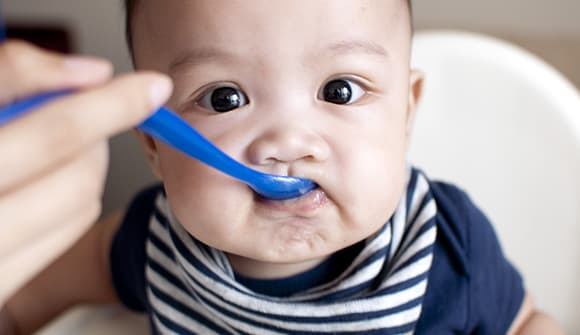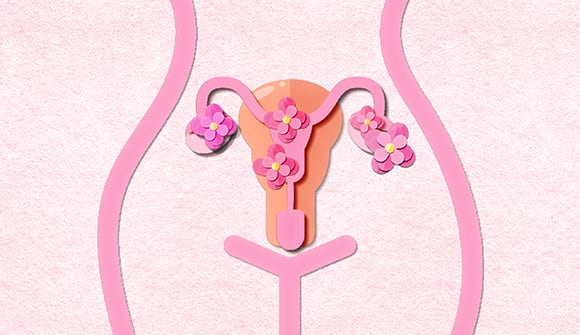Feeding your baby from day one to one year
Every baby’s diet is different, but some helpful tips apply to all.
Article Author: Katie McPherson
Article Date:

Newborns spend their days eating, sleeping and making dirty diapers, and with only three activities to try each day, each one carries a lot of importance. Parents of newborns will have many questions about what their baby should be eating, how much and when, and those questions will continue as baby grows and changes.
Shiree Sauer, MD, a pediatrician with Baptist Primary Care in Orange Park, suggests parents keep a record of how much their baby eats in 24 hours rather than each individual feeding. Making sure they’re eating enough overall will help them gain weight healthily.
“There are minimum amounts a child is expected to gain at certain age benchmarks, and it’s more telling to track how much they’re eating over 24 hours,” said Dr. Sauer. “There was a study done with a group of babies solely nursed from the breast, babies fed breastmilk from a bottle, and formula-fed babies.
"The babies who did best were actually the ones who were nursed. A nursing mom doesn’t have any clue how much the baby is eating because the baby is completely in charge of how much they’re eating. In this case, from day one, they’re controlling their own hunger. Try to simulate that feeding on demand by always making a half an ounce more than the baby usually eats when bottle-feeding. They may stop eating and be satisfied before they finish, or they may be hungrier and eat it all.”
Many babies are developmentally ready to try solids around 4 months old, but your baby’s pediatrician can offer expert guidance on when your baby should make the transition. He or she will know when your baby is physically developed enough to safely consume solids; until then, breastmilk or formula provide all of the nutrients needed for growth.
When offering solid foods, make sure they are soft, blended textures. Infants shouldn't eat hot dogs, nuts, round candies, grapes, popcorn, or hard fruits and vegetables because they all are choking hazards for little ones.
One surprise is the newer recommendation from doctors not to avoid potentially allergy-triggering foods until babies are older. Studies show early exposure to peanuts, eggs, fish and strawberries decreases the risk of developing allergies.
“I think the major change has been more about the incorporation of what had been foods to stay away from to being incorporated at an earlier age. It used to be with foods like eggs, fish, nuts and strawberries, physicians would encourage moms not to introduce these foods until the baby was a year or older,” said Dr. Sauer. “Many recent studies have been done on this, and it has been found that even in children who have a genetic predisposition to allergies, introducing these foods before six months decreases their chances of developing food allergies.” Your baby's pediatrician can advise you on how to introduce these foods.
One thing to keep away from baby until after he or she turns 1: honey, which can carry bacteria called Clostridium botulinum. This dangerous bacteria can cause botulism when it enters a baby's developing digestive system.
If you have questions or concerns about your baby’s eating habits, make an appointment with a pediatrician at a Baptist Primary Care location near you or call 904.202.4YOU (4968).



